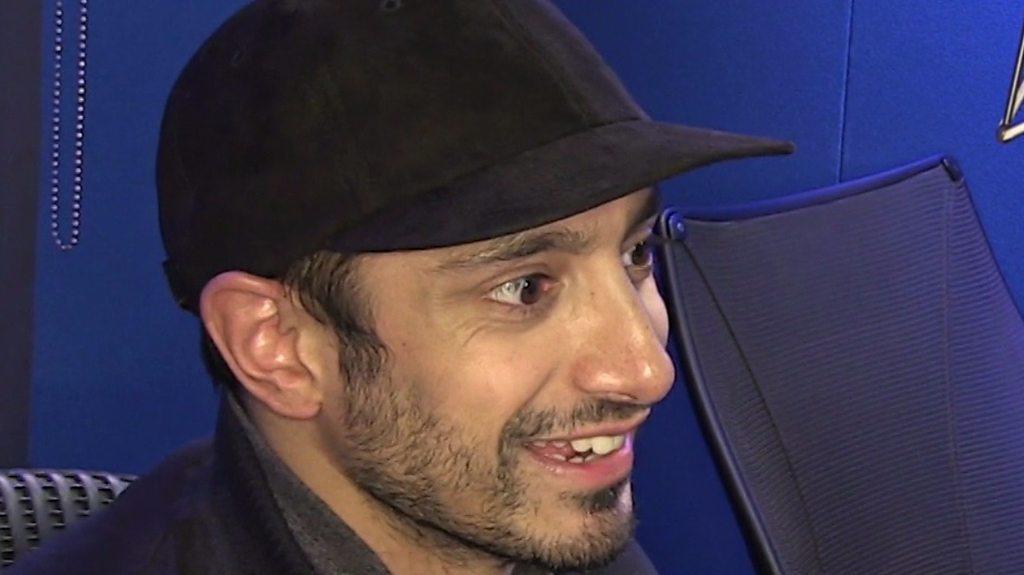Actor Riz Ahmed wants to stop Hollywood's 'toxic portrayals' of Muslims
- Published
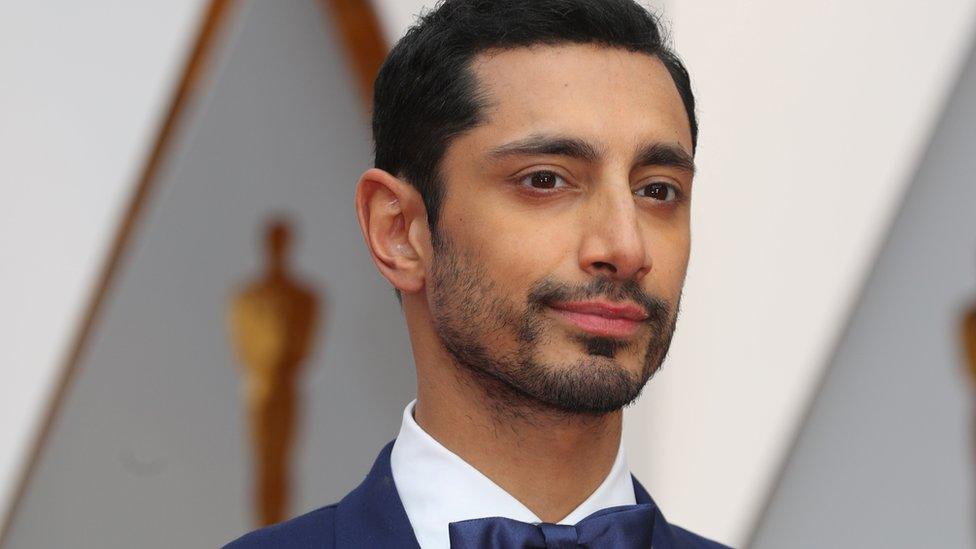
Riz Ahmed said his history-making Oscar nomination was 'bittersweet'
British actor and rapper Riz Ahmed has launched a fund to help combat "toxic portrayals" of Muslims in films.
The move comes after a study showed Muslims rarely appear on screen, or are shown in a negative light if they do.
Earlier this year, the Sound of Metal star became the first Muslim to be nominated for best actor at the Oscars.
Ahmed, who is also known for Rogue One and The Night Of, said: "The problem with Muslim misrepresentation is one that can't be ignored any more."
In an online video, external, he said his history-making Oscar nomination was a "bittersweet" moment.
'Unwritten rule'
"I simultaneously wore that slightly dubious accolade with a sense of gratitude personally... I also felt tremendous sadness.
"How was it that out of 1.6 billion people - a quarter of the world's population - none of us had ever been in this position until now?
"I asked myself, if I'm the exception to the rule, what must the rule be about people like me? What must the unwritten rule be about Muslims - a quarter of the world's population - and their place in our stories, our culture and their place in our society, if any?"
Allow X content?
This article contains content provided by X. We ask for your permission before anything is loaded, as they may be using cookies and other technologies. You may want to read X’s cookie policy, external and privacy policy, external before accepting. To view this content choose ‘accept and continue’.
The 38-year-old Londoner added: "But I'm here to briefly tell you that exceptions don't change the rules. Exceptions if anything highlight the rule and in some ways allow us to be complacent about leaving that rule in place.
"The progress that's being made by a few of us doesn't paint an overall picture of progress if most of the portrayals of Muslims on screen are still either non-existent or entrenched in those stereotypical toxic two-dimensional portrayals."
He said the new Blueprint for Muslim Inclusion would include funding and mentoring for up-and-coming Muslim storytellers.
The $25,000 (£17,700) fellowships for young Muslim artists will be awarded by an advisory committee that will include such actors and comedians as Mahershala Ali, Ramy Youssef and Hasan Minhaj.
Missing and Maligned
The study by the Annenberg Inclusion Initiative, titled Missing and Maligned, found that fewer than 10% of top-grossing films released between 2017-2019 from the UK, US and Australia featured a speaking Muslim character.
When they did, they were shown as outsiders, threatening or subservient, the study suggested. About one-third were perpetrators of violence and more than half were targets of violence.
Ahmed said many of the depictions were "completely racist". In a statement, the actor said: "The representation of Muslims on screen feeds the policies that get enacted, the people that get killed, the countries that get invaded.
"The data doesn't lie. This study shows us the scale of the problem in popular film, and its cost is measured in lost potential and lost lives."
Riz Ahmed: "Just trying to represent and reflect my own experience"
Al-Baab Khan, one of the report's authors, said: "Muslims live all over the world, but film audiences only see a narrow portrait of this community, rather than viewing Muslims as they are: business owners, friends and neighbours whose presence is part of modern life."
After making his name playing a hapless Jihadi in the 2010 satire Four Lions, Ahmed recently said he enjoyed the fact that the religion and ethnicity of his character Ruben in Sound of Metal was not mentioned at all in the movie.
His other recent film Moghul Mowgli was a deeply personal take on, and celebration of, British-Asian culture.
Meanwhile in his parallel career as a rapper, Ahmed tackled issues around Islamophobia in the UK in his 2020 album The Long Goodbye.

Follow us on Facebook, external or on Twitter @BBCNewsEnts, external. If you have a story suggestion email entertainment.news@bbc.co.uk, external.
Related topics
- Published2 April 2021
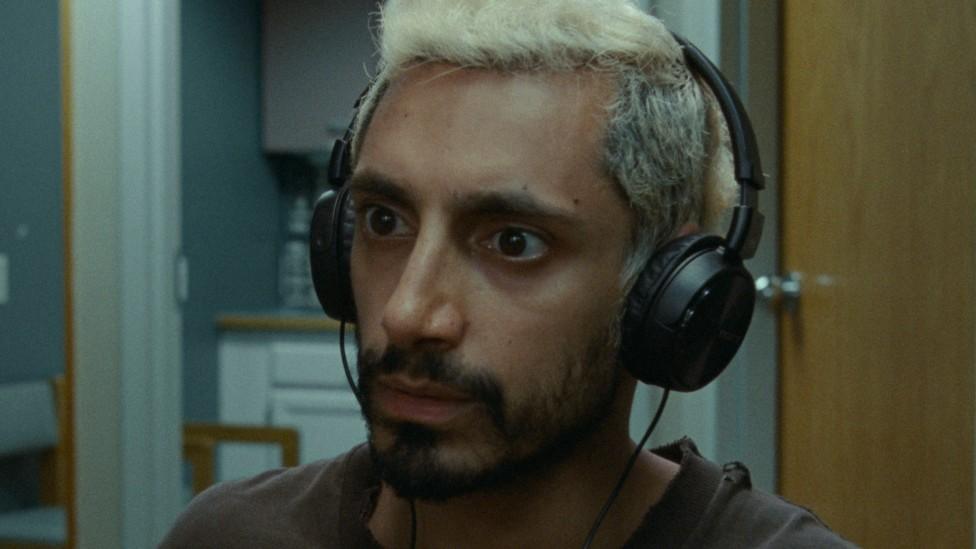
- Published5 April 2021
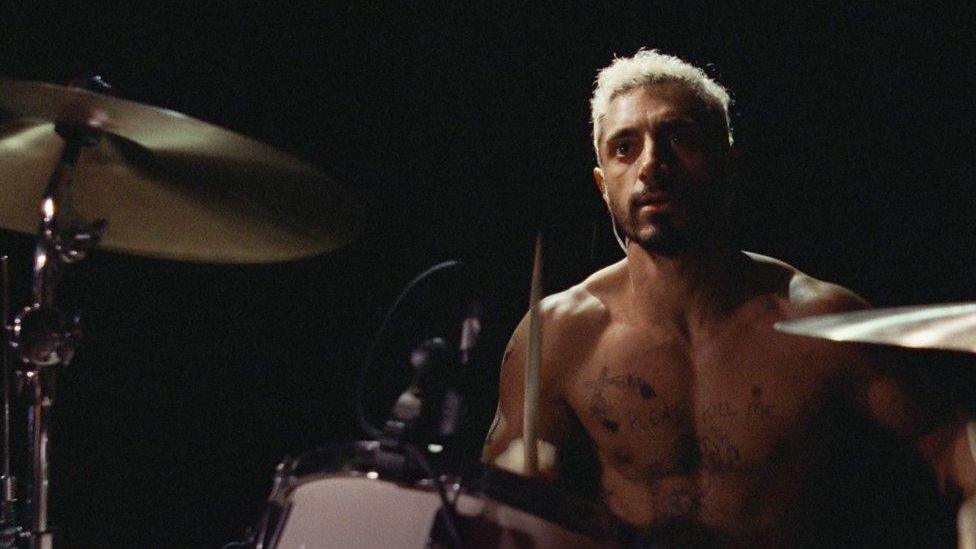
- Published6 March 2020
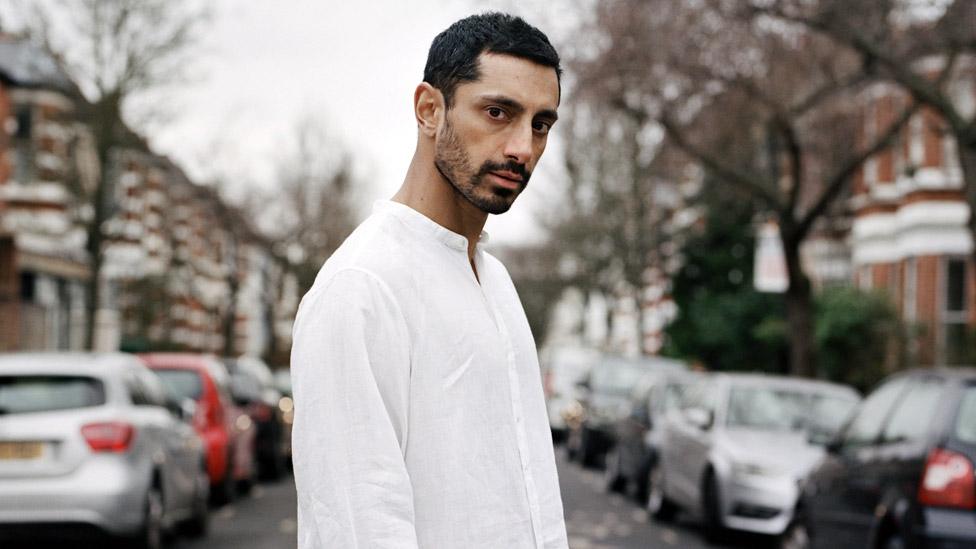
- Published4 April 2017
